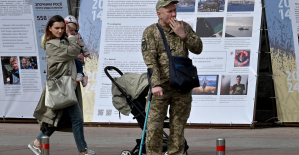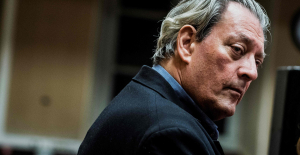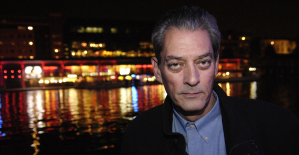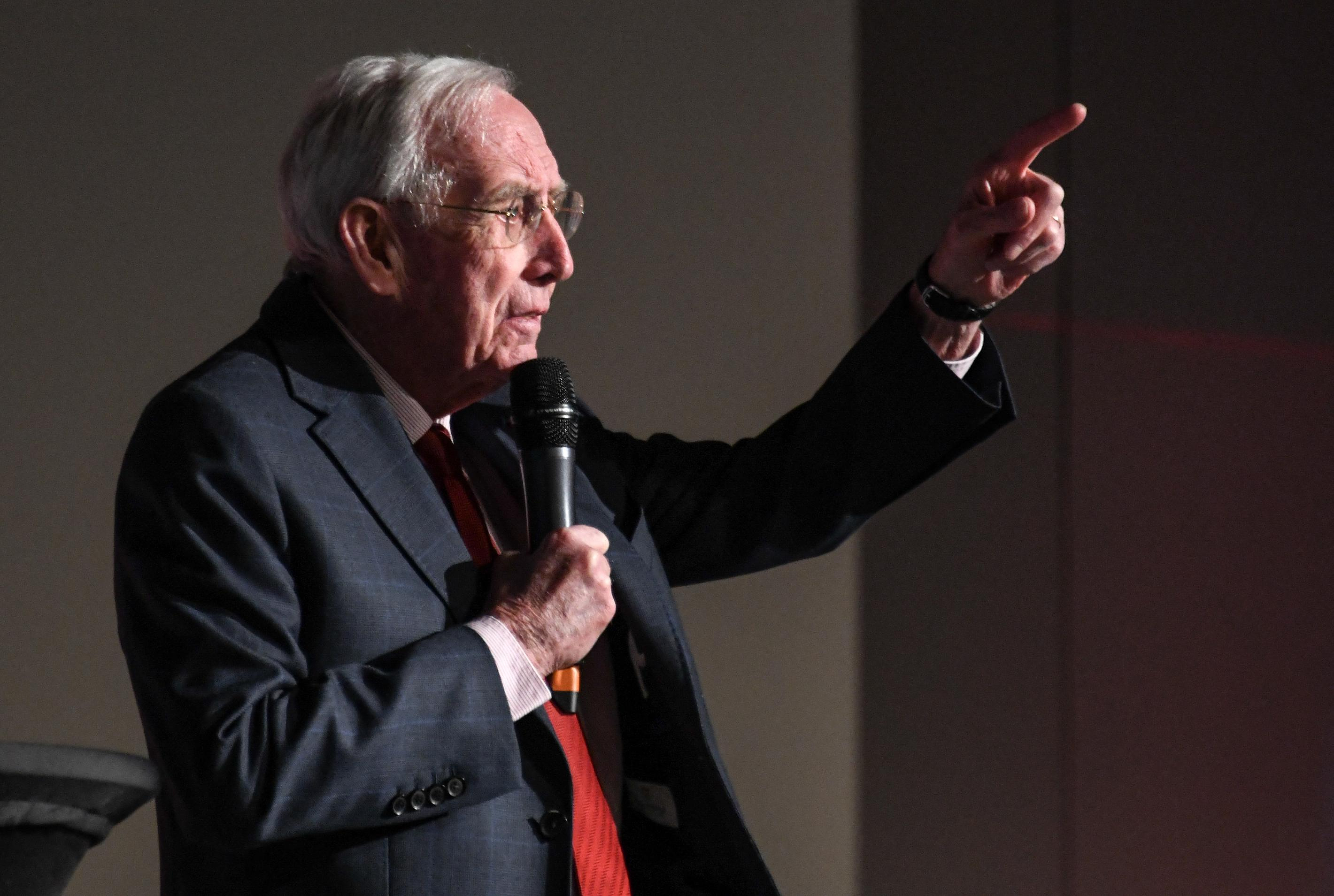On the 14. In February 1969, the Munich-based doctor Rudolf Zenker occurs shortly connected in front of the press. He read out a statement. The Operation that had he and his colleagues on the day before ventured, had been a failure, he says, and leaves the room. His Patient had died. It's not some OP, but the first Transplantation of a heart from person to person in Germany.
27 hours after the SURGERY, the first Patient was dead
time had settled in Germany. Elsewhere, it had the world's first such Operation by Christiaan Barnard in Cape town on 3. December 1967, as the New York Times called, a true "epidemic" of heart transplants. More than 100 transplants have been tried in 1968. Most of the patients did not survive long, some much shorter than Zenkers Patient in Munich 50 years ago today.
"It was all very early," says Bruno Reichart on the first attempt, in Germany. He was a 1971 assistant Zenker and was the mid-1980s in Cape town, the successor of Barnard. "You have to give the step great respect, that you made it," says Reichart. The Doctors had done nothing wrong. You are eminently prepared. "It was a bitter pill for them is not difficult. You don't have to talk about," he recalls.
The surgeon Werner Klinner and Fritz Sebening had planned the OP with a 30-strong Team Zenkers line meticulously. The 36-year-old Patient was terminally ill. The complicated surgery was successful. But the strangers of the heart not pumping correctly. It was from a fatally injured 39-Year-old and was for the Doctors at the time not ascertained, were injured in the accident. The post-mortem after the failed Operation revealed that it had formed a small tear in the posterior coronary artery, a blood clot, the led only 27 hours after the OP – to the death of the heart patient.
for Years, was in Germany, no heart to be transplanted
In Germany were the second and third Patient after the transplant. Worldwide, the results were in the early years was devastating. Only one Patient, operated on by Barnard, suffered the anniversary of the OP. And, although heart transplants were not technically the most Difficult, had the surgery.
The biggest Problem was preparing the Doctors of the immune system. To get the rejection reaction between the donor organ and the recipient organism in the handle, in the early years is extremely difficult. The could go so far that patients were given so many drugs that the immune system is suppressed that they died as Barnard's first Patient, an infection. Very few Doctors, among them Barnard, and the American surgeon Norman Shumway, continued to operate, with easy-to-increasing success. The most troubled.
The Munich-based heart surgeon, Rudolf Zenker, in a press statement to the first heart transplant in the Federal Republic of Germany from the...photo: dpaIn Germany, the handle after a year-long break in may 1981, a Team led by the Munich-based surgeon Fritz Sebening as the first back to the scalpel. New drugs such as cyclosporin, which are no longer blocked to prevent the rejection of the entire immune system, have brought better results. In 1983, the first heart-lung Transplantation in Germany, in Reichart in Munich. In 1997, he transplanted for the first time, the nationwide heart, lung, and liver at the same time. The patient lived eleven years – a Testament to the progress in transplantation medicine.
"We accept today's institutions, we would not have accepted 20 years ago,"
Meanwhile, the heart transplantation is a recognised treatment for seriously ill people. In the past year, transplanted Doctors in Germany according to the German organ transplantation Foundation 318 the heart. After years of declining Numbers – especially after the organ donation scandal in 2012 – means that for the first Time, again an increase. Nevertheless, the waiting lists are long, currently about 700 patients in Germany, hope for a new heart.
Volkmar Falk, Medical Director of the German heart centre in Berlin, is the biggest Problem in the Donation. "Because many people do not agree with the current rules active, you agree to be passive with no," said Falk the daily mirror. Therefore, he would argue for a contradiction solution. In countries with this scheme, the Donation proof was higher. And the small number of donors have to follow: "We accept today, for example, organs from older donors, we would not have accepted 20 years ago," said Falk. "Simply because the organs are so scarce."
This was only possible because they could manage the patient thanks to a complex of intensive therapy, improved anesthetic management, and the involvement of Infectious disease specialists better. Also the drugs which inhibit the immune system, to be further improved, and with the new method, the organs can be protected during transportation better.
After one year, about 80 to 90 percent of the heart in the receiver, still, after ten years, about 60 percent, says Falk. "When you consider that the people would have died without a new heart, these are very good Numbers."
A replacement heart in the backpack
Meanwhile, has reached the research last year, a milestone. Bruno Reichart and his Team managed to have a genetically-manipulated pig's heart for six months in a baboon beat. "This has reached a first period of time, remember that the technique could be used," says Falk. Until such clinical trials begin on humans, it'll take but according to Reichart for at least three years.
More about50 years, heart transplantation is The moon landing of the surgery
Richard FriebeIn Berlin, is working on the development of another type of valve replacement: artificial heart systems. 150 of such battery-operated centrifugal pumps, the patient can carry in a backpack around, to be installed per year in the German heart centre in Berlin, patients. "We hope to be able to a permanent Alternative to heart transplantation to develop," said Falk. (with dpa)

 Poland, big winner of European enlargement
Poland, big winner of European enlargement In Israel, step-by-step negotiations for a ceasefire in the Gaza Strip
In Israel, step-by-step negotiations for a ceasefire in the Gaza Strip BBVA ADRs fall almost 2% on Wall Street
BBVA ADRs fall almost 2% on Wall Street Ukraine has lost 10 million inhabitants since 2001... and could lose as many by 2050
Ukraine has lost 10 million inhabitants since 2001... and could lose as many by 2050 Sánchez cancels his agenda and considers resigning: "I need to stop and reflect"
Sánchez cancels his agenda and considers resigning: "I need to stop and reflect" The Federal Committee of the PSOE interrupts the event to take to the streets with the militants
The Federal Committee of the PSOE interrupts the event to take to the streets with the militants Repsol: "We want to lead generative AI to guarantee its benefits and avoid risks"
Repsol: "We want to lead generative AI to guarantee its benefits and avoid risks" Osteoarthritis: an innovation to improve its management
Osteoarthritis: an innovation to improve its management Ukraine gets a spokesperson generated by artificial intelligence
Ukraine gets a spokesperson generated by artificial intelligence The French will take advantage of the May bridges to explore France
The French will take advantage of the May bridges to explore France Organic flour contaminated by a recalled toxic plant
Organic flour contaminated by a recalled toxic plant 2024 Olympics: Parisian garbage collectors have filed a strike notice
2024 Olympics: Parisian garbage collectors have filed a strike notice Death of Paul Auster: Actes Sud says he is “lucky” to have been his publisher in France
Death of Paul Auster: Actes Sud says he is “lucky” to have been his publisher in France Lang Lang, the most French of Chinese pianists
Lang Lang, the most French of Chinese pianists Author of the “New York Trilogy”, American novelist Paul Auster has died at the age of 77
Author of the “New York Trilogy”, American novelist Paul Auster has died at the age of 77 To the End of the World, The Stolen Painting, Border Line... Films to watch this week
To the End of the World, The Stolen Painting, Border Line... Films to watch this week Omoda 7, another Chinese car that could be manufactured in Spain
Omoda 7, another Chinese car that could be manufactured in Spain BYD chooses CA Auto Bank as financial partner in Spain
BYD chooses CA Auto Bank as financial partner in Spain Tesla and Baidu sign key agreement to boost development of autonomous driving
Tesla and Baidu sign key agreement to boost development of autonomous driving Skoda Kodiaq 2024: a 'beast' plug-in hybrid SUV
Skoda Kodiaq 2024: a 'beast' plug-in hybrid SUV The home mortgage firm rises 3.8% in February and the average interest moderates to 3.33%
The home mortgage firm rises 3.8% in February and the average interest moderates to 3.33% This is how housing prices have changed in Spain in the last decade
This is how housing prices have changed in Spain in the last decade The home mortgage firm drops 10% in January and interest soars to 3.46%
The home mortgage firm drops 10% in January and interest soars to 3.46% The jewel of the Rocío de Nagüeles urbanization: a dream villa in Marbella
The jewel of the Rocío de Nagüeles urbanization: a dream villa in Marbella Europeans: a senior official on the National Rally list
Europeans: a senior official on the National Rally list Blockade of Sciences Po: the right denounces a “drift”, the government charges the rebels
Blockade of Sciences Po: the right denounces a “drift”, the government charges the rebels Even on a mission for NATO, the Charles-de-Gaulle remains under French control, Lecornu responds to Mélenchon
Even on a mission for NATO, the Charles-de-Gaulle remains under French control, Lecornu responds to Mélenchon “Deadly Europe”, “economic decline”, immigration… What to remember from Emmanuel Macron’s speech at the Sorbonne
“Deadly Europe”, “economic decline”, immigration… What to remember from Emmanuel Macron’s speech at the Sorbonne These French cities that will boycott the World Cup in Qatar
These French cities that will boycott the World Cup in Qatar Top 14: Fijian hooker Narisia leaves Racing 92 and signs for Oyonnax
Top 14: Fijian hooker Narisia leaves Racing 92 and signs for Oyonnax Europa League: Jean-Louis Gasset is “wary” of Atalanta, an “atypical team”
Europa League: Jean-Louis Gasset is “wary” of Atalanta, an “atypical team” Europa League: “I don’t believe it…”, Gasset jokes about Aubameyang’s age
Europa League: “I don’t believe it…”, Gasset jokes about Aubameyang’s age Foot: Rupture of the cruciate ligaments for Sergino Dest (PSV), absent until 2025
Foot: Rupture of the cruciate ligaments for Sergino Dest (PSV), absent until 2025
















